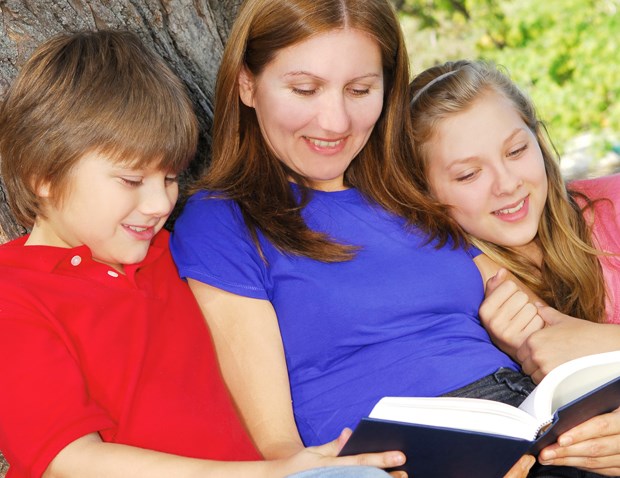Children's relationships with peers and adults have a greater impact on their well-being than socio-economic status, according to new UBC research.
"Our findings underline the essential importance of positive social relationships with adults and peers for children's health and subjective well-being," said Anne Gadermann, lead author of the study and assistant professor with the Human Early Learning Partnership (HELP) at UBC's School of Population and Public Health. "Making homes, schools and community settings places of belonging and caring is important for children's thriving."
The researchers surveyed 5,026 Grade 4 students from 121 elementary schools in three public school districts in B.C. The most significant predictors of life satisfaction were a sense of connectedness with adults at home and at school, as well as peer belonging. The most significant predictors of overall health were peer belonging, connectedness with adults at home, school and neighbourhood; frequency of having breakfast; and participating in after-school team sports. The frequency of eating junk food was negatively associated with self-rated health.
"Understanding factors associated with children's health and sense of well-being is important so that, as a society, we are better able to support them in their development," said Gadermann. "Health and subjective wellbeing of children are important in their own right, and they are also associated with positive outcomes during adolescence and adulthood."
The outcome of this study makes ultimate good sense. Relationships with peers take place in school and extra curricular activities. So our role is to support our kid's friendships.
But, building a solid relationship foundation within the family is sometimes a challenge. With our busy schedules this can seem overwhelming. How do we find the time? I turned to Judy Arnall who is a parenting and education consultant, keynote speaker and best-selling author with Professional Parenting Canada.
In her book, Discipline Without Distress, she noted some simple and doable ways that busy families can stay connected.
Her first suggestion is to read together. When our kids are little we do this naturally, but once they can read themselves we tend to let it go. But reading together is a wonderful way to not only cuddle and relax; you can have some great conversations based on what you're reading.
Family meals are another connection time we often talk about. There is a sort of Norman Rockwell image of the family sitting together, chatting and laughing while eating a fabulous meal. The reality is that you grab something on the run as you head off to soccer practice. Dinnertime is just not the best time for our toddlers and preschoolers. They are tired and cranky and so are their parents. So, how about sitting down together for breakfast and having a more formal dinner table meal on Sundays?
Family celebrations and rituals are a great relationship builder. Kids love predictability and when they know that certain things will always happen on their birthday or that Christmas means regular planned activities they feel safe and secure within the family.
Often parents tell me that they would like to have more productive conversations with their teens, but it's hard to sit the child down and have a discussion. Driving time is a great time for relationship building. If you need to have a serious conversation about a sensitive or embarrassing topic the car is a great place to chat. Your child does not need to make eye contact with you and he knows that the discussion is time limited based on when you reach your destination.
Driving time can also be fun time with silly games or singing together. Many of us spend a great deal of time in the car with our kids. If you use it wisely you will find yourself in contact with your kids and in a strong and vibrant relationship that will extend well beyond the vehicle.
Building a relationship with our children does not have to be onerous. It simply means paying attention to the opportunities: regular rituals, a short chat and cuddle when kids are going to bed, sending a brief text from time to time.
When kids have a strong relationship with their parents they have a secure launching pad from which they can develop independence as they grow to become capable young men and women.
Kathy Lynn is a professional speaker and author. Sign up for her informational newsletter at parentingtoday.ca.



